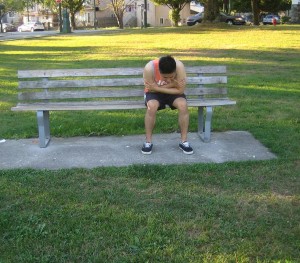Cardiac arrest is a serious condition of the heart where it stops beating. It is important to note that the heartbeat is regulated by electrical impulse. Once these impulses are altered, the heartbeat becomes erratic which is called an arrhythmia. Take note that cardiac arrest arises if the rhythm of the heart stops.
As a serious health issue, cardiac arrest can cause death or disability. If an individual experiences the symptoms of cardiac arrest, seek immediate medical attention. Remember that the condition can be fatal.
What are the causes?

Various factors can lead to cardiac arrest. The most common causes include ventricular and atrial fibrillation.
- Ventricular fibrillation – the ventricles or 2 lower chambers of the heart quiver uncontrollably. This causes the rhythm of the heart of alter drastically. The ventricles start to pump insufficiently which reduces the amount of blood pumped all over the body.
- Atrial fibrillation – this starts if the sinoatrial node does not transmit the appropriate electrical impulses. Once the electrical impulse goes into this state, the ventricles could not drive blood throughout the body efficiently.
Risk factors
Certain heart ailments and factors increases the risk for cardiac arrest such as:
- Coronary heart disease
- Irregular heart valves
- Large heart
- Issues with the electrical impulses
- Congenital heart disease
Indications of cardiac arrest
The initial indications of cardiac arrest are often cautionary signs. Seeking treatment before the heart stops can save a life.
If an individual is in cardiac arrest, he/she might:
- Vomit
- Become dizzy
- Feels weak or fatigued
- Become short of breath
- Experience heart palpitations
Immediate emergency treatment is required if an individual experiences these symptoms:
- Absence of pulse
- Chest pain
- Difficulty breathing or not breathing
- Loss of consciousness
- Collapse
Cardiac arrest might have no symptoms before it arises. If the individual has persistent symptoms, seek immediate medical attention.
Management
Cardiopulmonary resuscitation (CPR) is an emergency procedure for cardiac arrest. Another option is a defibrillator which work by restoring the beating of the heart once it has stopped.
If an individual survives a cardiac arrest, the doctor will start the appropriate treatment to lower the risk for another attack.
- Medications that lower high blood pressure and cholesterol levels
- Exercise to improve cardiovascular health
- Surgery to fix any damaged blood vessels or heart valves. It might also involve the bypass or removal of any blockages in the arteries.
- Changes in the diet to lower the cholesterol level.
More Information / Disclaimer
The information posted on this page on cardiac arrest is for learning purposes only. Learn to recognize and manage cardiac arrest by taking a standard first aid course with Toronto First Aid.
